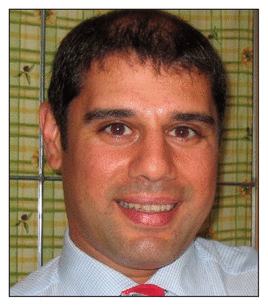
Peter J Zed
This time of year comes with the opportunity for reflection in both our personal and our professional lives, a chance to look back on the past year, to celebrate our successes, and to consider how the coming year can be even better. Such reflection also creates an opportunity to explore the challenges that lie ahead and to determine how we, as individuals, institutions, health care providers, and educators, can improve the lives of the patients to whom we provide care and the learners whom we train. Here, I have selected 4 areas of challenge and opportunity that I think deserve our consideration within current hospital pharmacy practice: quality of care, patient safety, experiential education, and postgraduate training.
Provision of quality care is an ongoing challenge, and today, more than ever before, appropriate expectations have been placed on pharmacists as valued health care providers to deliver the highest quality of care to our patients. I hope we have moved past the times of simply keeping track of how much we do each day as providers, toward a greater focus on the quality of care that we provide. Over the past 5 years, some great work has been done on clinical pharmacy key performance indicators, which will help us to focus on optimizing drug therapy to achieve desired patient outcomes.1,2 This work must continue to evolve, and the application and reporting of these indicators across the country will be critical to refining what we do for our patients.
Patient safety continues to represent a challenge in all aspects of health care. Despite a strong spotlight on this area for many years, we all continue to be challenged to ensure that our patients are safe. Safe prescribing, dispensing, preparation, and administration of medications continue to depend on state-of-the-art technologies to reduce errors.3 However, despite safe practices and specific strategies to minimize medication errors, the rate at which our patients experience adverse drug events—either as the reason for an emergency department visit or hospital admission or related to a medication received while in hospital or shortly after discharge—continues to be high. We must not lose our focus on this challenge, and we must continue to work with patients, other health care providers, and the complex system of which we are a part to find ways to reduce these adverse events. The work is hard, and the solutions are often complex, but we should maintain our resolve to do what we can to ensure our patients’ safety while in hospital and to reduce the occurrence of adverse events shortly after discharge.
|
|
||
Experiential education in hospital pharmacy practice has undergone significant re-evaluation and reform in many places across the country. New models of experiential learning are being employed to take advantage of the many valuable opportunities to train learners at different stages of their education, while meeting the capacity needs of multiple training programs.4,5 Competency-based assessments are also now widely accepted and employed to ensure that learners are capable of practising at the expected level of performance. Together, these aspects of the education system necessitate the availability of more competent preceptors and improved infrastructure to support experiential training sites. Emerging challenges associated with the implementation and evaluation of new educational models, combined with higher expectations on learners, preceptors, and sites, create exciting opportunities but also test the long-standing commitment and passion of our practice educators.
Finally, postgraduate training is changing rapidly in Canada, with direct implications for hospital practice. The implementation of entry-to-practice Doctor of Pharmacy programs at many Canadian universities will change the type of graduates who are completing our pharmacy programs. The development of revised postgraduate year 1 residencies and more diverse year 2 residency programs will create new and important educational pathways for pharmacy residents. Emerging postgraduate programs that focus on practice, including combination degree programs, will also produce pharmacists with new and different levels of training, who will offer unique and valuable skill sets to hospitals as clinicians, educators, researchers, and administrators. This area will continue to evolve, and ongoing national discussions to define postgraduate training pathways will help not only the learners as they determine their respective paths but also the administrators in hospital pharmacy as they endeavour to understand career progression, succession, and opportunities for the future work force.
I am sure that each of you could identify other challenges that we currently face in hospital practice. We continue to have strong leadership in hospital pharmacy practice in our country and, despite the always-changing and emerging issues that arise, we continue to move our practices forward, all in the interests of providing exemplary patient care. As 2016 draws to a close, please take some of your own time to celebrate the successes of the past year and to embrace the opportunities and challenges that the year ahead will present.
1 Fernandez O, Gorman SK, Slavik RS, Semchuk WM, Shalansky S, Bussières JF, et al. Development of clinical pharmacy key performance indicators for hospital pharmacists using a modified Delphi approach. Ann Pharmacother. 2015;49(6):656–69.
2 Lo E, Rainkie D, Semchuk WM, Gorman SK, Toombs K, Slavik RS, et al. Measurement of clinical pharmacy key performance indicators to focus and improve your hospital pharmacy practice. Can J Hosp Pharm. 2016;69(2): 149–55.

3 Shah K, Lo C, Babich M, Tsao NW, Bansback NJ. Bar code medication administration technology: a systematic review of impact on patient safety when used with computerized prescriber order entry and automated dispensing devices. Can J Hosp Pharm. 2016;69(5):394–402.

4 Loewen P, Legal M, Gamble A, Shah K, Tkachuk S, Zed P. Learner: preceptor ratios for practice-based learning across health disciplines: a systematic review. Med Educ. 2016 Nov 23. Epub ahead of print.
5 Cameron K, Fernandes O, Musing ELS, Raymond C. Increasing capacity for experiential rotations for pharmacy learners: lessons learned from a multisite teaching hospital. Can J Hosp Pharm. 2016;69(1):23–9.

Competing interests: None declared. ( Return to Text )
Canadian Journal of Hospital Pharmacy, VOLUME 69, NUMBER 6, November-December 2016